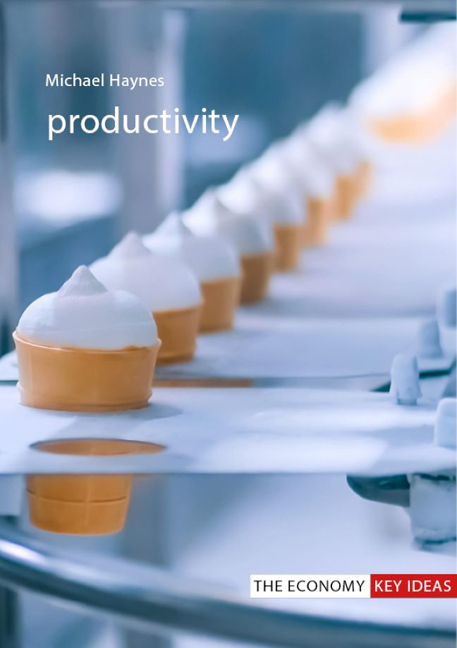Book contents
- Frontmatter
- Contents
- Preface
- 1 Productivity: “it is almost everything”
- 2 How does productivity happen?
- 3 Mysterious figures
- 4 Can productivity growth go on forever?
- 5 It’s tough at the top
- 6 Miracle productivity growth in the Asian Tigers?
- 7 Coming last? Low productivity in Africa
- 8 Productivity in a different world
- Bibliography
- Index
1 - Productivity: “it is almost everything”
Published online by Cambridge University Press: 20 December 2023
- Frontmatter
- Contents
- Preface
- 1 Productivity: “it is almost everything”
- 2 How does productivity happen?
- 3 Mysterious figures
- 4 Can productivity growth go on forever?
- 5 It’s tough at the top
- 6 Miracle productivity growth in the Asian Tigers?
- 7 Coming last? Low productivity in Africa
- 8 Productivity in a different world
- Bibliography
- Index
Summary
Paul Krugman is one of the world's best-known economists. He has a Nobel Prize in economics and a regular economics column. He once said, “productivity isn't everything, but, in the long run, it is almost everything”. Few economists have not heard this quote. The reason productivity is so important, Krugman continued, is that “a country's ability to improve its standard of living over time depends almost entirely on its ability to raise its output per worker” (Krugman 1994a: 11). This makes the idea of productivity look pretty important, and it is. But it has also been suggested that today the word most associated with productivity is puzzle. Productivity is a puzzle because it is a problem to understand conceptually; it is a problem to measure; it is a problem to explain and it is a problem to know how to improve it. Much of this book is about this productivity puzzle, but first we need to ask why productivity matters so much.
Imagine that we double the inputs we put into the economy. We might hope to double the output. But getting the same amount out as you put in is not very impressive. It is an example of what is called extensive growth. What we really want is more from the extra bits we put in. We want more output per hectare of land we use, more output per worker and more output per unit of capital. This is called intensive growth. Until the late nineteenth century, economists tended to talk of productiveness as a catch-all term. They were not very careful to distinguish between extensive growth and increasing what you get out per unit that is put in. But in the late nineteenth century they began to use the term productivity for this second effect. Productivity here is efficiency, it is a ratio of inputs to outputs and it is the driving force of intensive growth.
We can get more out separately from each of the factors of production. There is the land input, and this might lead us to think of land productivity. There is labour: the physical and nervous energy we expend.
- Type
- Chapter
- Information
- Productivity , pp. 1 - 22Publisher: Agenda PublishingPrint publication year: 2020

